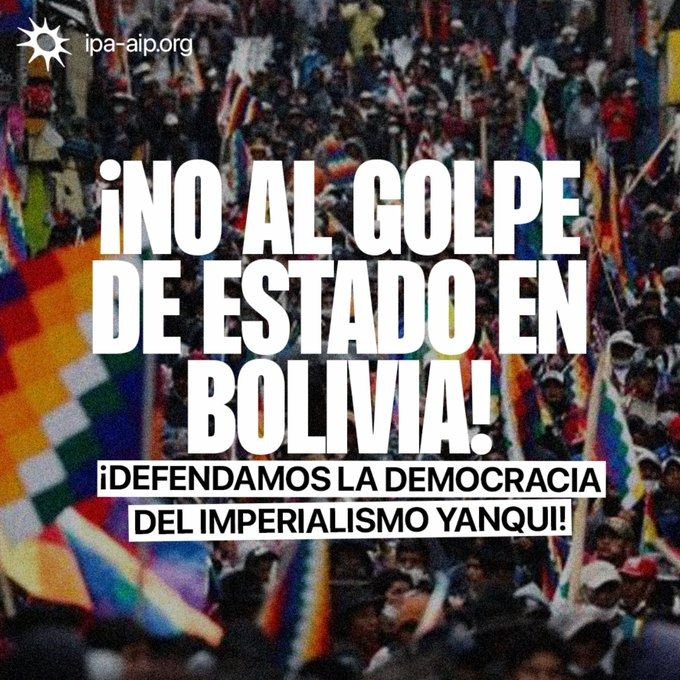
By Roberto Morejón
With courage and the announcement by social forces that they would oppose an uprising, the Bolivian government, under the leadership of President Luis Arce, managed to quell the coup attempt by the now former head of the army, Juan José Zúñiga.
Bolivia has managed to stop the return of the barracks, of which the country has been a victim in its history, and whose last chapter took place in 2019, when the right colluded with military sectors and elevated the opportunist as president, Bible in hand. Jeanine Áñez, today in jail.
At that time they lined up against the then president Evo Morales, with the collusion of the OAS and far-right businessmen like Luis Fernando Camacho, today behind bars, because he also subsequently promoted separatism, strikes and road blockades.
Not by chance, the army commander Juan José Zúñiga, who would have cooperated in the coup against Evo, launched an incendiary harangue this Wednesday during the few hours in which he believed he was in control of the situation, and then treacherously demolished the doors of the Burned Palace.
Significantly, the uniformed man called for the release of those he called “political prisoners”, Áñez and Camacho, which portrayed him in his real objectives, to take the country to the darkest days of repression and the collapse of the economy.
The date of the military coup was not coincidental. It occurred precisely one day after Zúñiga's dismissal, a dismissal that was accelerated after having assured that the Armed Forces would not allow former president Evo Morales to run in the 2025 elections.
Apparently the plot did not have the quick reaction of a large part of the governments of Latin America and other regions of the world.
These pronouncements and Arce's timely decision to appoint new heads of the different armed forces, contributed to the dark plans of the insubordinate culminating in failure.
His desperate statements at the time of his arrest, when talking about what he called Arce's self-coup, reveal his attempts to take advantage of the confusion to cast uncertainty on the constitutional government, elected by the majority of Bolivians.
Of course, the Bolivian authorities will try to investigate the behind-the-scenes of the dangerous adventure, in response to which, singularly, the United States did not initially issue a condemnation and limited itself to calling for calm.
And he did so knowing the importance of urging the preservation of institutional stability in Bolivia.

